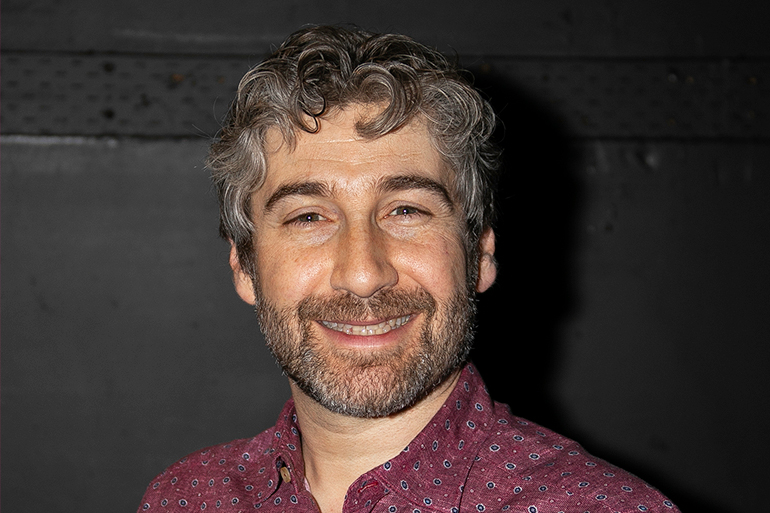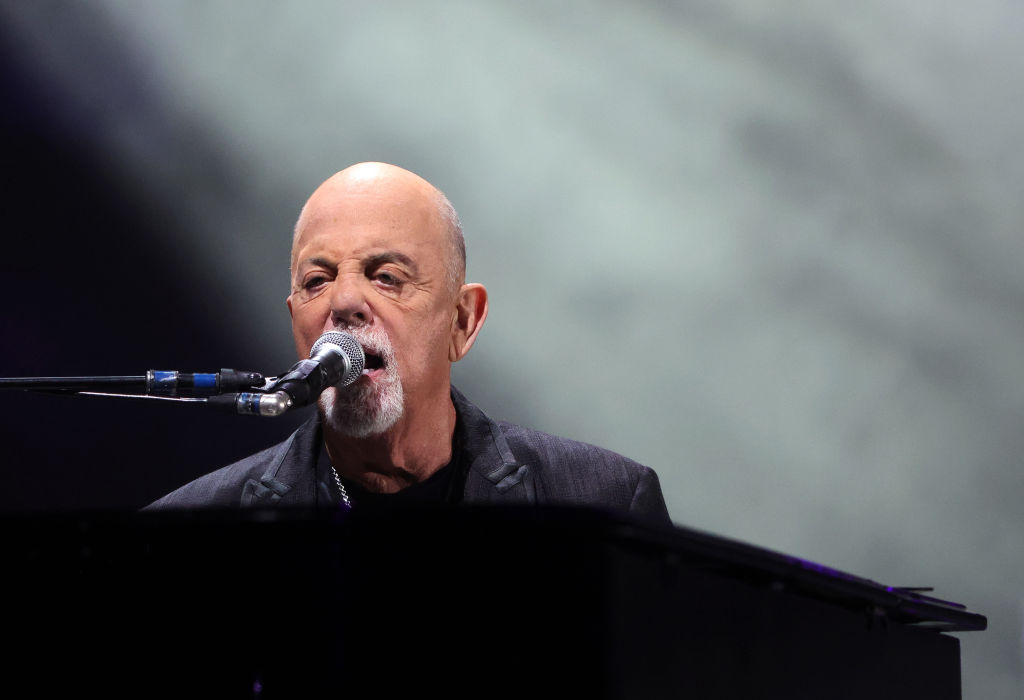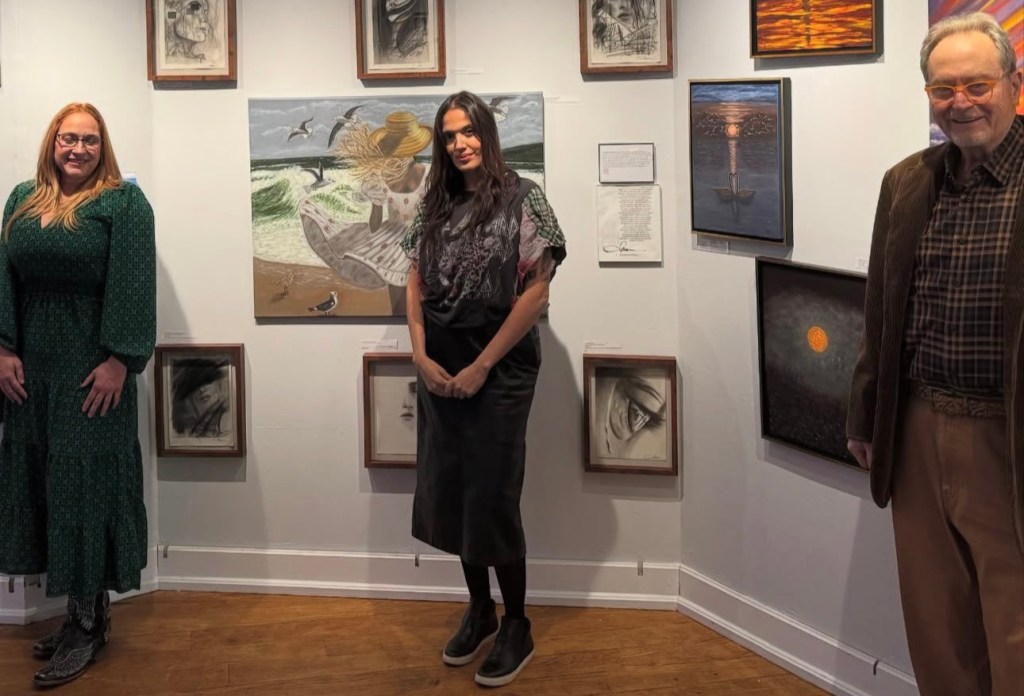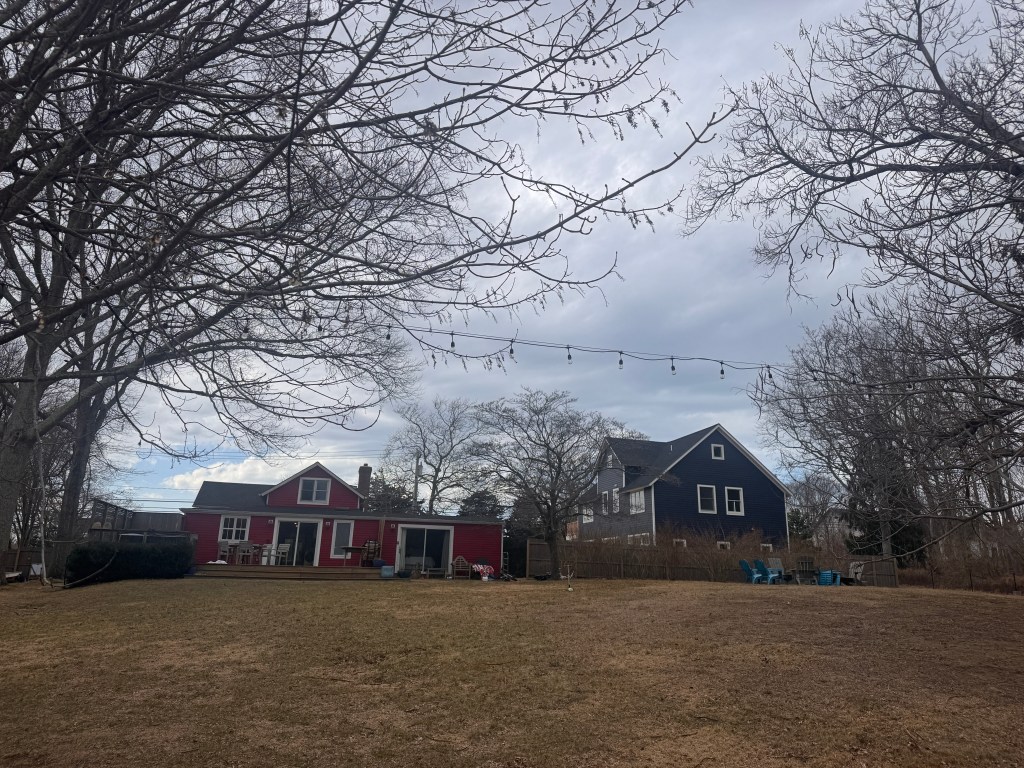Scott Schwartz on Bay Street Theater’s Ambitious 2020 Season

Every summer Bay Street Theater brings world-class theater to Sag Harbor as part of its Mainstage Season, and the 2020 lineup is shaping up to be one of the biggest, funniest and most heartwarming to date. The season opens in May with a new black comedy by Scooter Pietsch, Windfall. It’s followed by acclaimed Irish playwright Brian Friel’s Dancing at Lughnasa in June, which runs alongside a yet-unveiled bonus fourth show in July. The grand musical finale is Terrence McNally’s legendary Ragtime, opening in August. Bay Street Artistic Director Scott Schwartz offered an inside look at the theater’s exciting 2020 lineup.
Do the 2020 Mainstage plays share a unifying theme?
I think there are two, but quickly before that—the season is driven by individual works and artists that seem very exciting to us at Bay Street, so we don’t start out by saying, “This year we’re going to do a season about politics.” That’s not how we do it. What we do is look at the best works we can find, and then as things develop, we see themes begin to emerge.
The first is the theme of family, how families come together and also how families break apart. Families in the traditional sense of husbands, wives, sisters, but also families in the unconventional sense of the families you choose. I think all three works relate to that question. Windfall is not about people who are related but about people who, through their circumstance, have found themselves in a family of sorts, and how the quest for money and the need to change your life can threaten your relationships. Dancing at Lughnasa is about five unmarried sisters living together in Ireland in 1936. This is the last summer that this family will be together in the way that they are in the show, as their lives are changing. Ragtime is about three different families—one African American, one Jewish and one wealthy white family—and how those families themselves change over the course of the show, but also how the times affect those families and how they come together in unconventional ways to form new families. It’s a season that’s full of heart, and full of questions and love for family.
The other big theme that has emerged, which feels very timely to me, is the idea of people living in changing times and how you live your life when you’re not sure what the world is going to be like tomorrow, next year or five years from now…I think for all of us living in America today, the times clearly are changing, and nobody knows exactly how they’re going to end up. And I’m not talking just politically!
Did the 2020 presidential election or the fact that the Ragtime novel was written by East Ender E.L. Doctorow influence its inclusion?
There are certainly issues and questions in Ragtime that felt timely in a presidential election year, absolutely. It’s not a political show, per se…but certainly at its core, there are questions about immigration, questions about the relationship between races in America, questions about wealth and income inequality, and how we deal with that; there’s a question about social change and the role and power of women in society. It feels like basically all of the major issues in Ragtime are major issues that are being pretty hotly debated right now in our political sphere, so that is not an accident. It is a reason we’ve chosen the show, because it’s about things we’re all talking about at our dinner tables today, but we didn’t choose the show to make a political statement.
I remember reading Ragtime when I was about 15 years old, and I just loved it…The way it interweaves fictional characters and historical characters was so fascinating to me and continues to be. I then saw this show when it was produced on Broadway almost twenty years ago, and I was completely mesmerized by it…At Bay Street, we like to showcase work by artists who have a relationship to the East End, and the fact that Doctorow did was very exciting to us. Terrence McNally, who wrote the book to Ragtime, also has a place on the East End and comes to Bay Street.
Ragtime was a particularly interesting choice for us, because it was done in the biggest Broadway theater when it was first produced. It’s massive and sprawling as a story and has these different cultures, races and societies that are put onstage, so we examined it to see if we felt we could do it. It did have a huge orchestra, and when we examined it, we found a way to do it in a much more intimate way than it was originally done that I think will make it even more powerful and more emotional because the audience will be so close to the action and to the characters. I will, however, say that it will be the biggest musical we have done in my time at Bay Street, purely in terms of cast and orchestra size.
Do Dancing at Lughnasa or Windfall have any East End connections?
A little bit. One of the reasons that I chose Dancing at Lughnasa is that it’s an amazing, gorgeous play, and I thought it was well worthy of revival and re-exploration. I feel very lucky that we’ve gotten this opportunity to present it. It’s not actually easy to get the rights to Dancing at Lughnasa because it’s a very popular title for potential Broadway or London revivals…The other reason is that many of the original settlers on the East End—and certainly in the Sag Harbor area—were Irish, and we still have a huge Irish population in our community. Since coming to Bay Street, I’ve always wanted to do an Irish show or a show about Irish people, because that’s our community.
In terms of Windfall, I’m not sure that it has a specific connection to the East End, but what it does have is a connection to our New Works Festival. The way I became familiar with Scooter Pietsch’s writing is that we presented and developed one of his plays [The Cocktail Party Effect] in our New Works Festival. It wasn’t a play that we ultimately decided to do for various reasons, but I really admired Scooter’s work and thought he had a really strong voice…When I read Windfall, I laughed out loud and really found it so gleefully delicious, wild and dangerous.
Can you talk a little more about the premiere of Windfall?
It concerns a group of people who are working in a data processing office in the Midwest—Columbus, Ohio. They labor under a maniacal and very difficult boss, and every week they go in to buy a lottery ticket together for fun, and maybe they’ll get lucky. This week it’s the biggest jackpot ever—a $1 billion jackpot—and one of the office workers has a vision that if they pool all of their money and buy thousands of lottery tickets, they’ll win. As the boss’s behavior becomes increasingly egregious, they decide to do it and buy all of these lottery tickets, spending all the money they have to spend. Then they think they’ve won, but they can’t find the ticket. Things turn violent after that, and they turn on each other. It’s very funny and very dark and satirical. I kind of describe it as The Office meets Martin McDonagh, the great playwright of The Lieutenant of Inishmore, who wrote about violence with great glee. It’s a very black comedy about have-nots trying to become haves.
What makes Dancing at Lughnasa a timely and thought-provoking play today?
It’s a very personal story and it’s about a culture and a group of people that is more distant from our own—it’s more like some of our ancestors’ or grandparents’ culture—but I don’t think it’s any less timely, because it’s this deep, powerful and loving story about sisters looking at their lives and at the world as it’s changing, and trying to figure out if they can stay together as a family.
We have a very contemporary show in Windfall—it’s set basically today—in Ragtime, you have a big, complicated, sprawling story about the turn of the last century that has these big societal issues and questions, and I thought to have a show that’s really about family, love and passion, and even sex and the desires we have, was a really nice complement to the other two shows
Visit baystreet.org for more info on the 2020 season and on how to become a subscriber.



